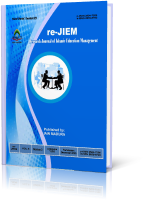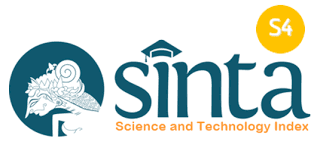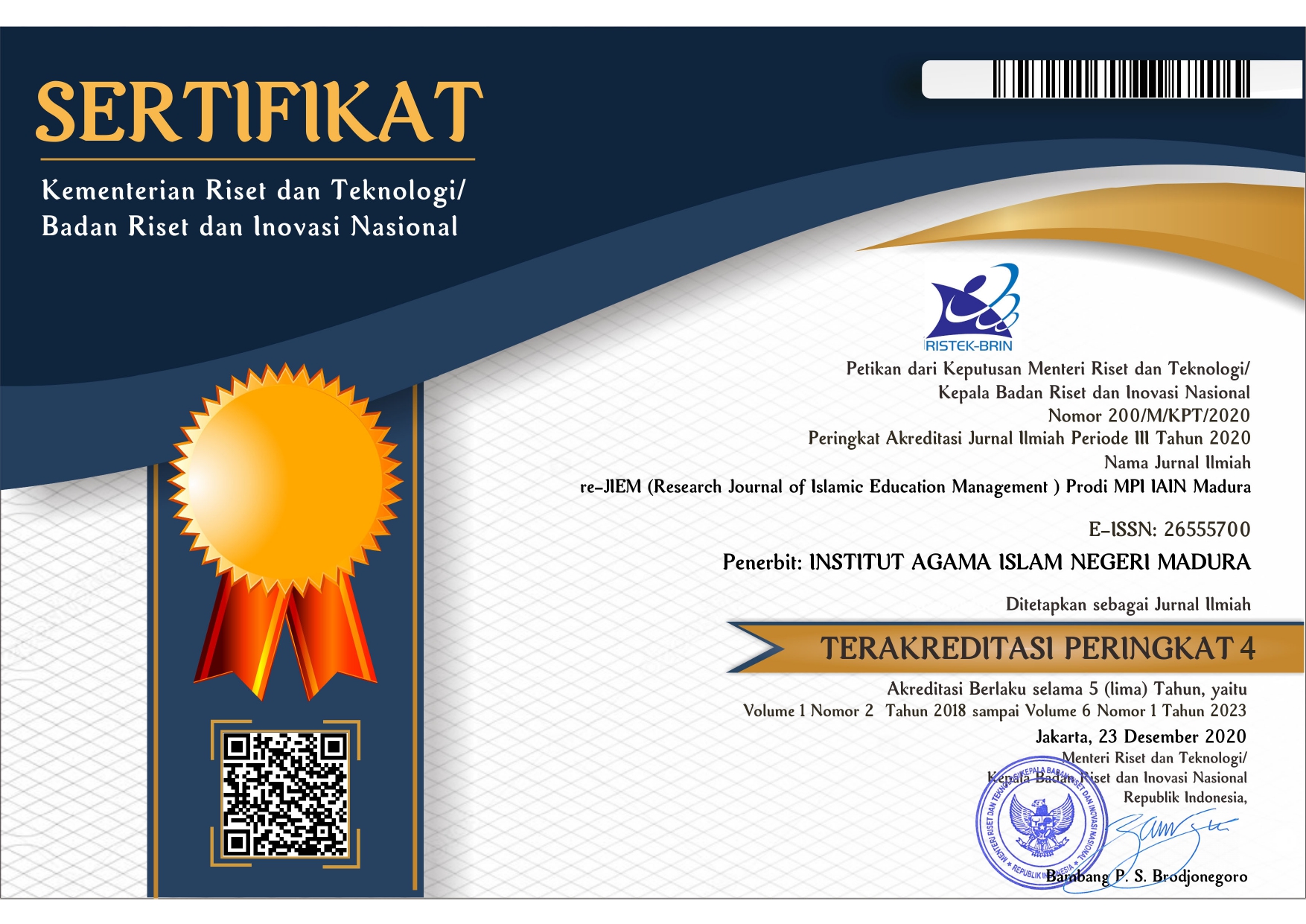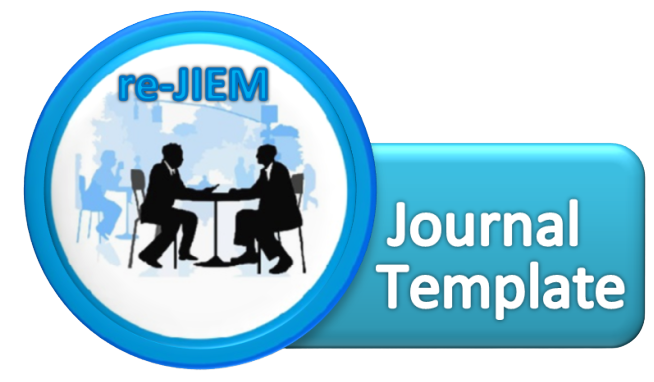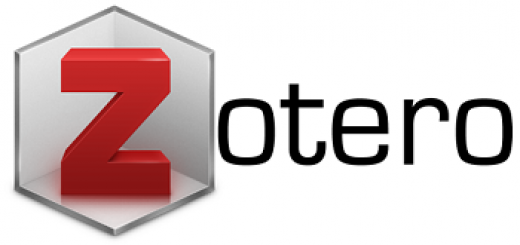ACHIEVEMENT-ORIENTED BEHAVIORAL PRACTICES BY THE HEAD OF RAUDHATUL ATHFAL IN THE IMPLEMENTATION OF THE INDEPENDENT CURRICULUM
 Abstract views: 146
,
Abstract views: 146
,
 PDF ENGLISH downloads: 114
PDF ENGLISH downloads: 114
Abstract
This study aims to describe and analyze the practice of achievement-oriented behavior by the head of RA Nurul Dzikri towards teachers in the implementation of the independent curriculum. Theoretically, the practice of achievement-oriented behavior is one manifestation of the practice of path-goal leadership. This research uses a qualitative research approach with a phenomenological research type. Data was collected using interviews, observation, and documentation. Then the data were analyzed using the data analysis technique of the Miles and Huberman models, which consisted of three stages: data reduction, data display, and verification. The results showed that the practice of achievement-oriented behavior by the head of RA towards teachers in the implementation of the independent curriculum and moderation of religion at RA Nurul Dzikri was carried out through the following steps: (1) Identifying problems in the implementation of the independent curriculum and moderation of religion; (2) Make remedial efforts to overcome problems in implementing the independent curriculum and religious moderation; (3) Giving teachers space to be creative in implementing the independent curriculum and religious moderation; and (4) Providing opportunities for teachers to increase their competence in implementing the independent curriculum and religious moderation. These four steps have made teacher RA Nurul Dzikri gain achievements in implementing the independent curriculum by making it a national-scale benchmarking center for other early childhood education institutions in implementing the independent curriculum.
Downloads
References
Aziz Hussin, Anealka. “Education 4.0 Made Simple: Ideas For Teaching.” International Journal of Education and Literacy Studies 6, no. 3 (July 31, 2018): 92. https://doi.org/10.7575/aiac.ijels.v.6n.3p.92.
Baird, Thomas J., and Linda E. Clark. “The ‘Look-Ahead’ Professional Development Model: A Professional Development Model for Implementing New Curriculum with a Focus on Instructional Strategies.” Professional Development in Education 44, no. 3 (May 27, 2018): 326–41. https://doi.org/10.1080/19415257.2017.1308424.
Bray, Bethany C., and John J. Dziak. “Commentary on Latent Class, Latent Profile, and Latent Transition Analysis for Characterizing Individual Differences in Learning.” Learning and Individual Differences 66 (August 2018): 105–10. https://doi.org/10.1016/j.lindif.2018.06.001.
Chen, Liyan, and Maria Socorro C. L. Fernando. “Path-Goal Theory-Based Leadership Development Deployment Guidelines for the Middle Managers of an International University in China.” ABAC ODI Journal Vision. Action. Outcome 10, no. 1 (2022): 65–88.
Dunbar, Kyle, and Aman Yadav. “Shifting to Student-Centered Learning: Influences of Teaching a Summer Service Learning Program.” Teaching and Teacher Education 110 (February 2022): 103578. https://doi.org/10.1016/j.tate.2021.103578.
House, Robert J. “Path-Goal Theory of Leadership: Lessons, Legacy, and a Reformulated Theory.” The Leadership Quarterly 7, no. 3 (September 1, 1996): 323–52. https://doi.org/10.1016/S1048-9843(96)90024-7.
Isotani, Seiji, Riichiro Mizoguchi, Sadao Isotani, Olimpio M. Capeli, Naoko Isotani, Antonio R.P. L. de Albuquerque, Ig. I. Bittencourt, and Patricia Jaques. “A Semantic Web-Based Authoring Tool to Facilitate the Planning of Collaborative Learning Scenarios Compliant with Learning Theories.” Computers & Education 63 (April 2013): 267–84. https://doi.org/10.1016/j.compedu.2012.12.009.
Khalil, Mohammed K., and Ihsan A. Elkhider. “Applying Learning Theories and Instructional Design Models for Effective Instruction.” Advances in Physiology Education 40, no. 2 (June 2016): 147–56. https://doi.org/10.1152/advan.00138.2015.
Malik, Sikandar Hayyat, Shamsa Aziz, and Hamid Hassan. “Leadership Behavior and Acceptance of Leaders by Subordinates: Application of Path Goal Theory in Telecom Sector.” International Journal of Trade, Economics and Finance 5, no. 2 (2014): 170–75. https://doi.org/10.7763/IJTEF.2014.V5.364.
Miles, Matthew B, A. Michael Huberman, and Johnny Saldana. Qualitative Data Analysis. Fourth Edition. California: Sage, 2018.
Moleong, Lexy J. Metode Penelitian Kualitaif. Bandung, Indonesia: Rosda, 2010.
Olowoselu, Abdulrasheed, Mua’azam bin Mohamad, and Shorouk Mohamed Farag Mohamed Aboudahr. “Path-Goal Theory and the Application in Educational Management and Leadership.” Education Quarterly Reviews 2, no. 2 (June 30, 2019). https://doi.org/10.31014/aior.1993.02.02.77.
Pratikno, Yuni, Eric Hermawan, and Antoni Ludfi Arifin. “Human Resource ‘Kurikulum Merdeka’ from Design to Implementation in the School: What Worked and What Not in Indonesian Education.” Jurnal Iqra’ : Kajian Ilmu Pendidikan 7, no. 1 (August 29, 2022): 326–43. https://doi.org/10.25217/ji.v7i1.1708.
Rindayati, Evilia, Cindi Arjihan Desita Putri, and Rian Damariswara. “Kesulitan Calon Pendidik Dalam Mengembangkan Perangkat Pembelajaran Pada Kurikulum Merdeka.” PTK: Jurnal Tindakan Kelas 3, no. 1 (September 9, 2022): 18–27. https://doi.org/10.53624/ptk.v3i1.104.
Russ, Rosemary S. “Characterizing Teacher Attention to Student Thinking: A Role for Epistemological Messages: TEACHER ATTENTION TO STUDENT THINKING.” Journal of Research in Science Teaching 55, no. 1 (January 2018): 94–120. https://doi.org/10.1002/tea.21414.
Silva, L.B.P. da, R. Soltovski, J. Pontes, F.T. Treinta, P. Leitão, E. Mosconi, L.M.M. de Resende, and R.T. Yoshino. “Human Resources Management 4.0: Literature Review and Trends.” Computers & Industrial Engineering 168 (June 2022): 108111. https://doi.org/10.1016/j.cie.2022.108111.
Sugiyono, Sugiyono. Metode Penelitian Kuantitaif, Kualitatif Dan R & D. Bandung, Indonesia: Alfabeta, 2010.
Sulistyani, Fajrina, Rahmat Mulyono, and Rahmat Mulyono. “IMPLEMENTASI KURIKULUM MERDEKA (IKM) SEBAGAI SEBUAH PILIHAN BAGI SATUAN PENDIDIKAN: KAJIAN PUSTAKA.” Didaktik : Jurnal Ilmiah PGSD STKIP Subang 8, no. 2 (December 26, 2022): 1999–2019. https://doi.org/10.36989/didaktik.v8i2.506.
Weiland, Christina, Meghan McCormick, Shira Mattera, Michelle Maier, and Pamela Morris. “Preschool Curricula and Professional Development Features for Getting to High-Quality Implementation at Scale: A Comparative Review Across Five Trials.” AERA Open 4, no. 1 (February 2018): 233285841875773. https://doi.org/10.1177/2332858418757735.
Zerr, Christopher L., Jeffrey J. Berg, Steven M. Nelson, Andrew K. Fishell, Neil K. Savalia, and Kathleen B. McDermott. “Learning Efficiency: Identifying Individual Differences in Learning Rate and Retention in Healthy Adults.” Psychological Science 29, no. 9 (September 2018): 1436–50. https://doi.org/10.1177/0956797618772540.
Copyright (c) 2024 Novan Ardy Wiyani, Novi Mulyani

This work is licensed under a Creative Commons Attribution-ShareAlike 4.0 International License.
Authors who publish with this journal agree to the following terms:
Authors retain copyright and grant the journal right of first publication with the work simultaneously licensed under a Creative Commons Attribution-ShareAlike 4.0 International License that allows others to copy and redistribute the material in any medium or format with an acknowledgment of the work's authorship and initial publication in this journal and also allows to remix, transform, and build upon the material for any purpose, even commercially with contributions under the same license as the original.
Authors are able to enter into separate, additional contractual arrangements for the non-exclusive distribution of the journal's published version of the work (e.g., post it to an institutional repository or publish it in a book), with an acknowledgment of its initial publication in this journal.
Authors are permitted and encouraged to post their work online (e.g., in institutional repositories or on their website) prior to and during the submission process, as it can lead to productive exchanges, as well as earlier and greater citation of published work.


